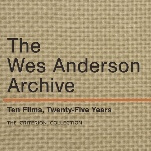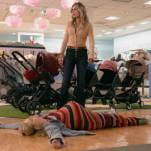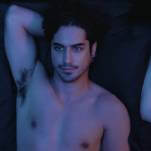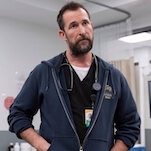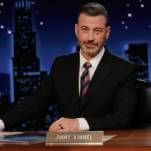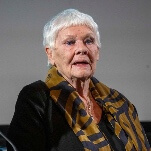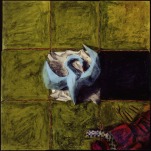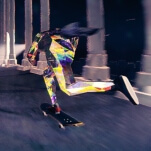When Hal Hartley’s feature debut The Unbelievable Truth was released in 1990, it proved a minor revelation. For a generation of college-aged young people raised on John Hughes movies—Generation X, basically—Hartley immediately became the new arbiter of cool, with Adrienne Shelly as his alternate-universe Molly Ringwald, an eccentric object of desire whose motives were tantalizingly mysterious. Given its impact at the time, it’s remarkable that the 20th-anniversary edition of The Unbelievable Truth is self-distributed, but then again, maybe Hartley was just the filmmaker of the moment, and that moment has passed. If he were a rock band, he could expect an audience composed entirely of 40-year-olds at the reunion show.
Nevertheless, The Unbelievable Truth was the beginning of something more lasting, both in terms of Hartley’s career as a doggedly independent filmmaker, and in a quirky sensibility that others would co-opt, badly. Though it was a rough draft for many strong films Hartley would produce in the early-to-mid ’90s—Trust, Simple Men, Surviving Desire, Amateur, Flirt, et al.—The Unbelievable Truth was still like nothing else at the time, an offbeat relationship study with dialogue pitched somewhere between Jim Jarmusch deadpan and the rhythms of a Samuel Beckett play.
A Hartley discovery—and muse, for a while—Shelly stars as a rebellious high-school student whose preoccupation with nuclear holocaust seems at times sincere, and at others, an excuse for not moving forward with her life. She unceremoniously dumps her longtime boyfriend, a preppie/jock type who dresses for success, and takes an interest in an older stranger, played by Robert John Burke, who works as a mechanic for her father. It turns out that Burke was just released from prison after serving time on a manslaughter charge, but while his reputation as a murderer belies his gentle personality, it also suggests some inner darkness.
The Unbelievable Truth deconstructs a classic story of teenage rebellion, with Burke cast as the dangerous James Dean type, and Shelly as the girl whose attraction to him arises from a general impulse to defy what’s expected of her. For his part, Burke is amusingly honest about his crimes—he admits to killing a man after trying to apologize for killing the man’s daughter two years earlier—but like all the characters in the film, his first impression isn’t the same as the last. Hartley explored similar themes of marginalization and, well, trust better in his 1991 follow-up, Trust, but The Unbelievable Truth tapped into a mood of disaffection that was creeping through the culture. Watching it 20 years later feels like time travel.
Key features: Typical of Hartley, the 17-minute piece “Years Later: The Unbelievable Truth And Its Consequences” is like a meta-featurette, built around interviews with Hartley, the late Shelly, Burke, and future favorites Martin Donovan and Thomas Jay Ryan.
Available from possiblefilms.com.





























